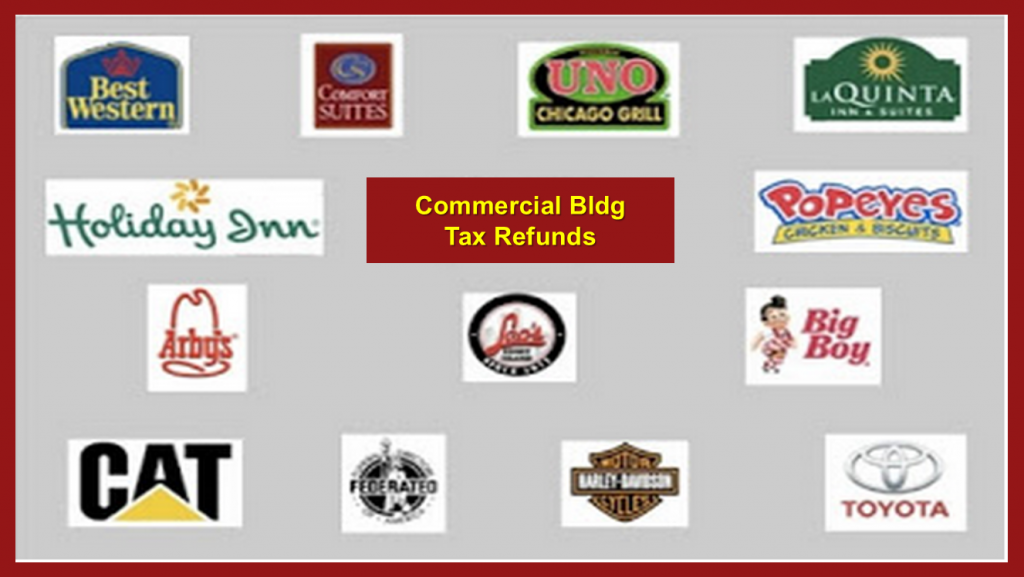Painless Working Capital Solutions
Working Capital Question #1: Does Uncle Sam Owe You Money?
If your business is experiencing a working capital problem, you’re probably not too interested in the financial and accounting technicalities of current assets and current liabilities, negative working capital vs. positive working capital, or working capital ratios.
Your business needs more money, period. You may think a working capital loan is the solution, but they’re increasingly difficult to obtain without ominous terms and conditions (aka “strings attached”).
What if your working capital answer lay right under your nose – in overlooked savings in your current spending on property and income taxes and vendor services like credit card transaction fees and workers’ comp premiums, both of which are notorious for hidden fees and billing inaccuracies that pad your bills every month?
Capturing these savings to boost your cash flow and working capital may seem too arduous and time-consuming to pursue, and it is if you try to do it yourself. The big accounting firms can help with some of it (mostly on the tax side), but their fees can often exceed your savings, which only compounds your working capital difficulties.
There’s a better solution and it’s been time-tested for over 18 years and proven safe, reliable and – best of all – with no upfront cost to you or your business. And we work with your current CPA or accountant to claim your savings. Read on to learn more about what may be the most cost-effective and user-friendly solution to your business’ working capital quandary.
Stop Overpaying to Increase Working Capital
Many U.S. businesses are missing out on tax credits and property tax reductions, and overpaying on income taxes due to straight line allocation of building component costs that should properly be depreciated much faster than a building’s structural components.
An in-depth engineering-based cost segregation study that the IRS actually recommends can properly allocate these costs and result in substantial cash recapture of tax over-payments and/or cash preservation with lower taxes going forward.
The specialized tax service we recommend has been selected by a number of national hotel chains and industry associations, as well as Keller Williams Commercial real estate, as their preferred provider for cost segregation studies that document for the IRS the most accurate depreciation of your building’s interior components and exterior improvements as well (parking, lighting, landscaping, etc.).
If you don’t own the building, you may still be eligible for savings for any leasehold improvements you’ve paid for, as well as other tax saving opportunities in your hiring and employee activities that result in process or product improvements. Even many start-up businesses that aren’t yet profitable are newly-eligible for savings that can reduce their payroll taxes substantially.
Your business is also likely to be overpaying for merchant credit card processing fees, workers compensation premiums, and freight and shipping charges due to billing errors, unclaimed discounts, and other sources of over-payments.
Even financially sound businesses should want to recover these over-payments – and those experiencing working capital pressures may find no simpler or faster way to find cash flow relief than these cost recovery strategies.
Cash Flow Stability First
Even if your business is in fine fiscal shape, it’s simply bad business practice to overpay your taxes and/or other business expenses. But if cash flow is a problem, the first objective is to get that in order so you can evaluate and execute your business strategy without feeling there’s a gun to your head.
This is why we recommend focusing first on your current business spending. It will not only reduce your need for external assistance, it will also improve your P&L and balance sheet so you can borrow, if needed, more easily and on better terms and conditions than you can in desperation mode (and we may even be able to help you secure that additional assistance if the savings we find for you are insufficient for your needs).
Once it’s determined which tax credit and/or vendor auditing programs your business is eligible for, you can authorize our cost recovery experts to undertake the needed studies and/or audits.
In any event, your business will be in a leaner operating mode and stronger financial position for whatever competitive challenges and opportunities you need to address.
Boost Working Capital with Tax Incentive Programs
Our risk-free cost recovery programs are designed to determine whether your business is eligible for any of a half-dozen or more engineering and auditing programs proven to generate refunds and other cash infusions for the vast majority of firms studied.
These include payroll (research and development, or R&D) tax credits that are even better than tax deductions because 100 cents of every tax credit dollar falls to your bottom line to improve cash flow for your business.
Most big companies eligible for these credits already take advantage of these tax incentive programs. But most mid-size and smaller companies do not – either because they’re confused as to what activities are eligible for these credits or intimidated by the documentation required to claim them (see this article in Bloomberg Businessweek for more on this, and this more recent article for a broader overview of R&D tax credits).
No Savings, No Fee Preserves Your Working Capital
What makes this opportunity especially attractive is we’ve teamed up with the various experts in the disciplines required to conduct these studies – engineers, accountants, IP attorneys, etc – to examine your business’ eligibility for one or more of these cash recovery programs with no up-front cost to your business. They bear the risk for study costs necessary to document your eligibility – which can be significant with the extensive professional services required.
Roughly 4 out of 5 businesses qualify for such cost recoveries – an even higher percent when all of them are considered. Those who don’t, however – usually because the amounts to be recovered aren’t sufficient to justify the effort at least won’t bear the substantial costs of investigating the opportunity for their businesses with traditional firms. Fees for these professional services are provided on a capped basis and are only payable if sufficient savings are found for your business (“No Savings, No Fee”).
These services can include engineering studies of building components for property-owning businesses that pay taxes – or leasehold improvements over $250,000 if your business rents space – to more precisely allocate building components for depreciation purposes. These are called cost-segregation studies and generally result in increased personal property categorizations that should be depreciated more quickly than a company’s real (land and structural) property – thereby increasing your business’ annual expenses for accounting purposes and reducing your tax obligations.
$240,000 Average Tax Savings Means
$240,000 in Additional Working Capital
You may be able to look back a number of years and find you’ve been overpaying both federal and state income taxes – as well as local property taxes – based on overstated real property costs and understated personal property costs. If so, recapturing these tax over-payments can materially boost your working capital – our clients average $240,000 in tax savings. And you don’t need to pass some lender’s credit review to claim them.
Here are some client companies that have benefited from this process…
Pay Only What You Owe In Taxes –
Keep the Rest for Working Capital
Many businesses have fallen victim to this misallocation of depreciable assets because of lack of engineering expertise and/or excess timidity about dealing with the IRS – which has issued some very detailed guidance for this process that should be followed for maximum benefit and security.
The net result of a properly executed engineering-based study that fully complies with IRS requirements can be a rapid infusion of cash flow. Other audits of workers’ comp costs, credit card processing fees, and freight and shipping costs can yield cash recoveries even sooner.
The obvious question here is why WOULDN’T a business want to examine its past expenses for such over-payments – especially when they can do so without risk of worsening their cash flow by doing so?
There is a requirement of time, however. Someone on your staff – usually your accountant or bookkeeper – will have to supply these outside professionals with the limited data and documentation needed to determine whether and how much your business is eligible to recover. That should go without saying, but bears mentioning in case that’s an issue for you.
Before that, however, a preliminary screening with our online Tax Savings Estimator tool will narrow down your eligibility for one or more tax savings or vendor audit programs.
And to get your Free & No-Obligation
Tax Savings Estimate, click here.

